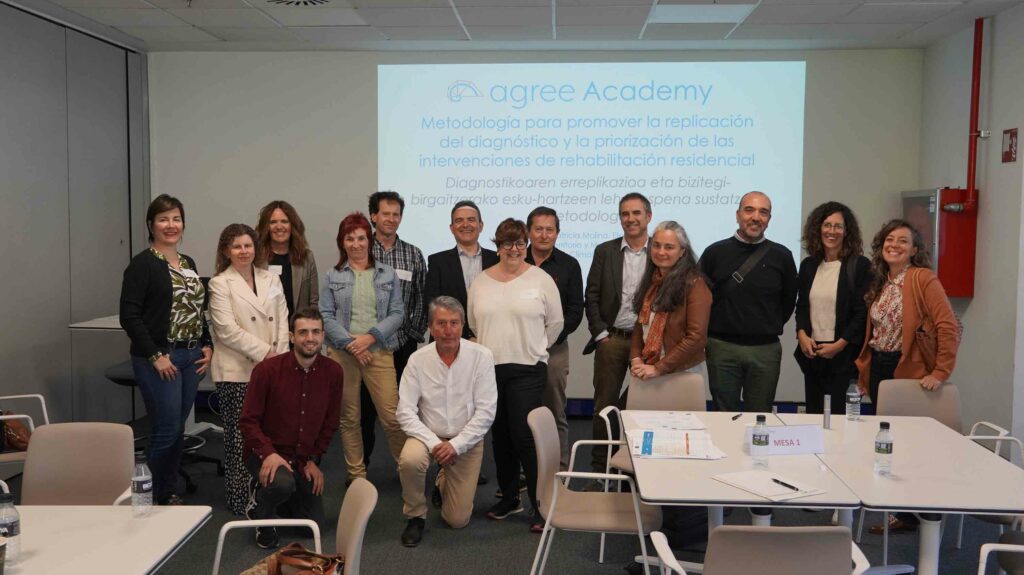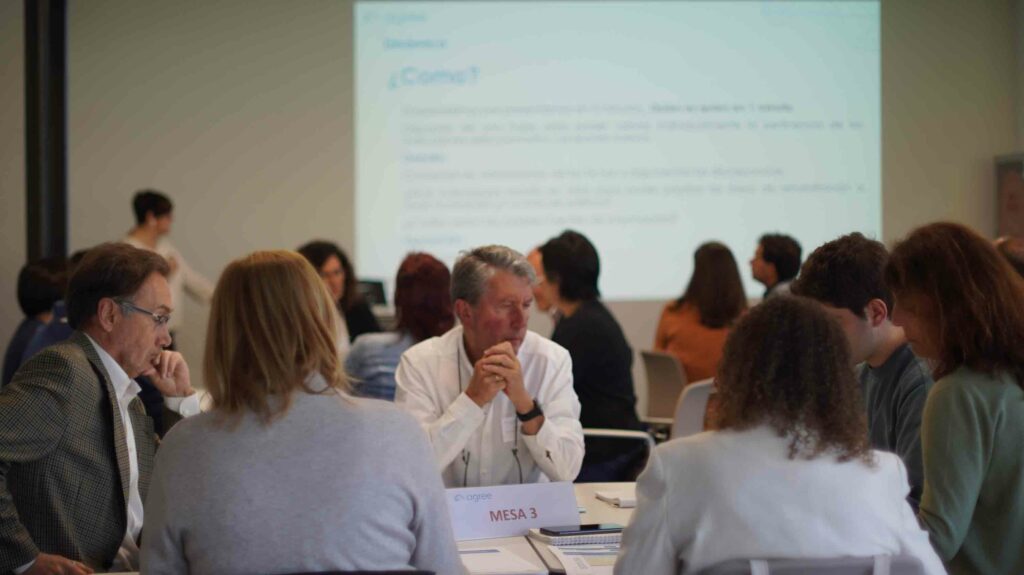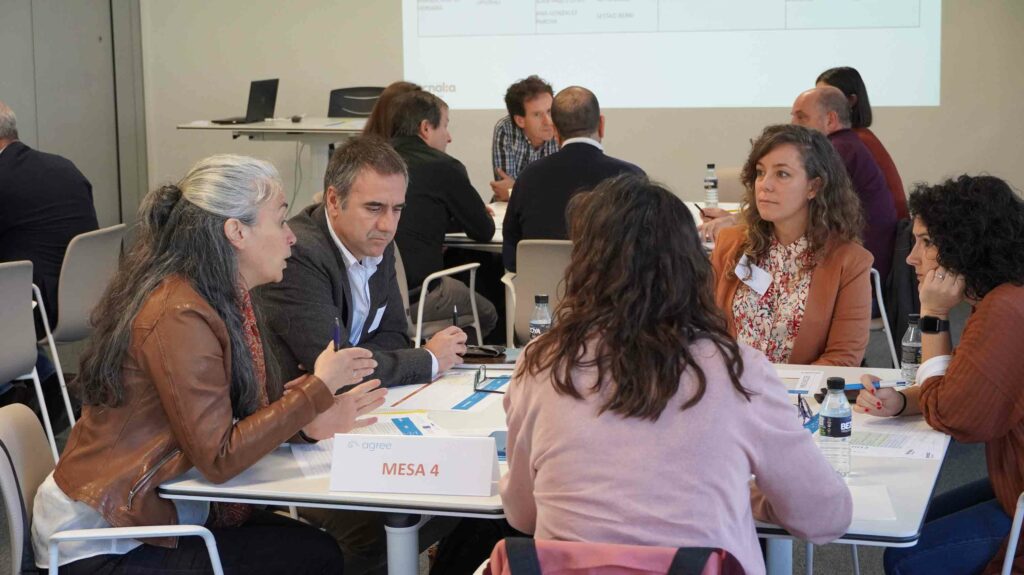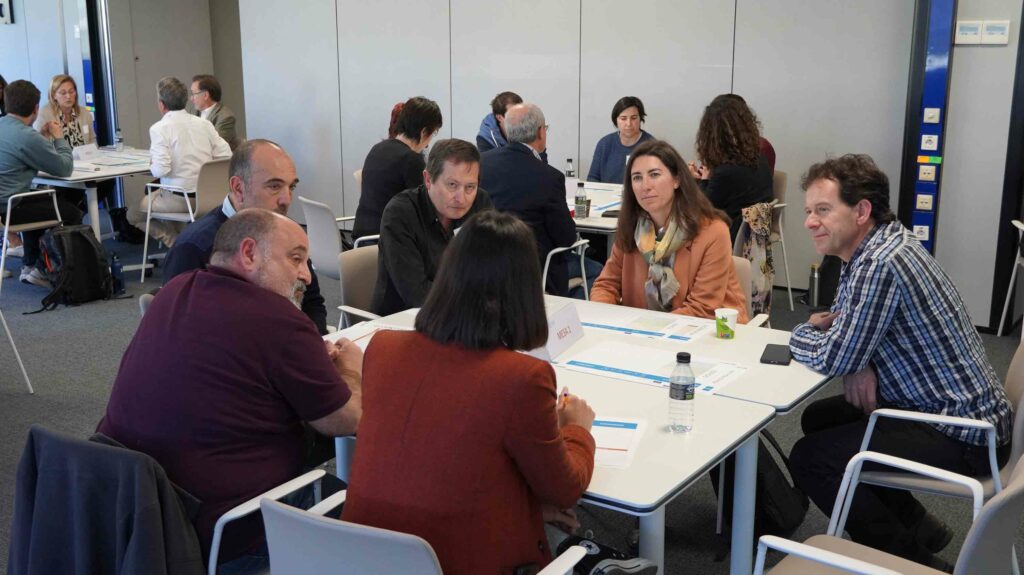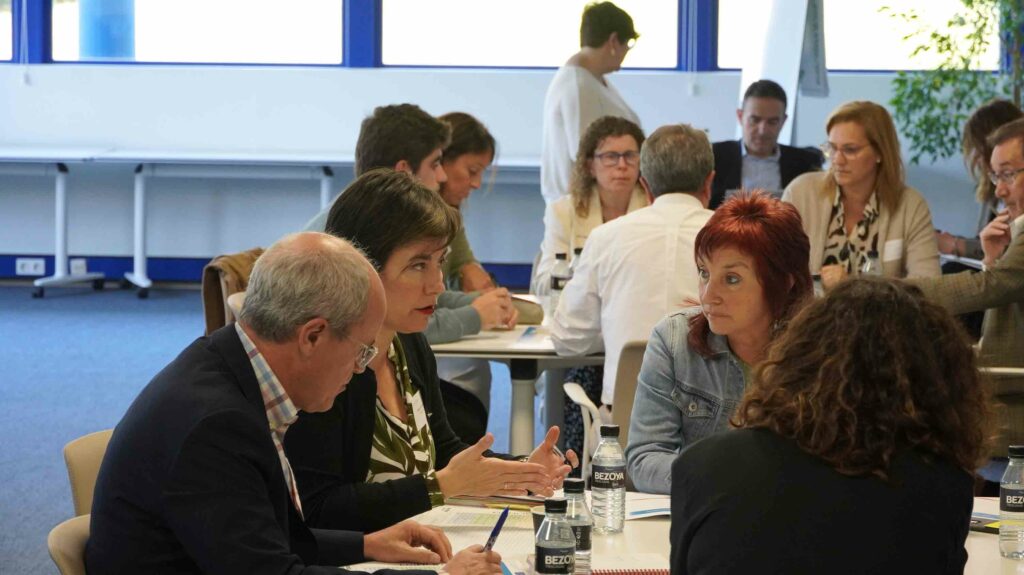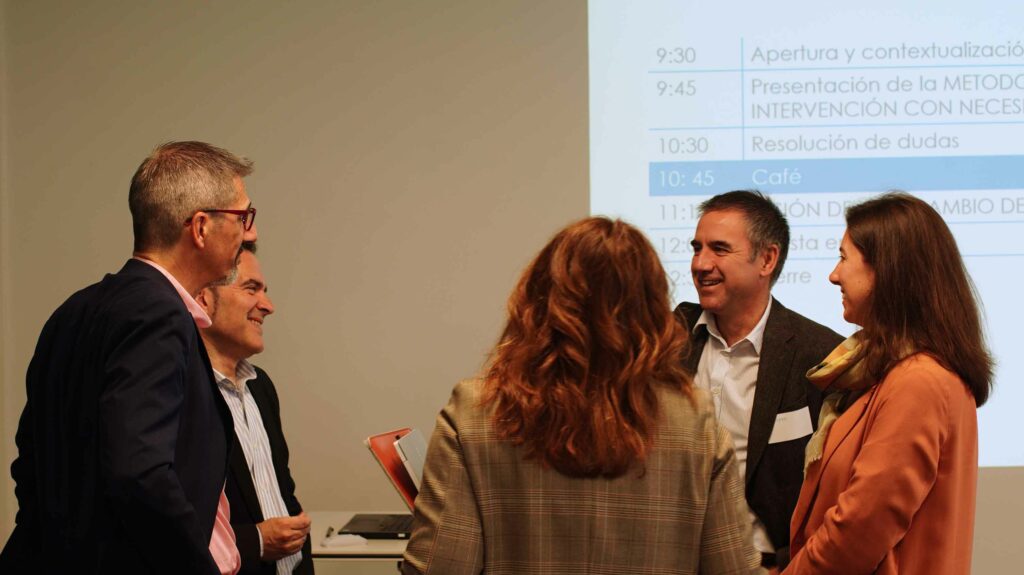The next workshop will be held on Friday, June 16 at the Plaza Bizkaia building in Bilbao under the title “How to implement an Action Plan for Energy Rehabilitation”
The workshop, framed in the replication process of the AGREE project, was held at the Tecnalia facilities and reviewed the key points of the project, deepening into the aggregation of demand and the methodology of data collection for the prioritization of interventions.
The project and evolution of the three pilots implemented in Vitoria-Gasteiz, Donostia-San Sebastián and Basauri were shared with a peer-to-peer learning workshop format that fostered the exchange of impressions and the enrichment of the conclusions. In this sense, the quality of the contributions was clearly favoured by the high level of involvement, both of the partners and of the registered entities.
After the presentation, the day was divided into three parts. The first exhibition was led by José Antonio González, of the Basque Government’s housing directorate, who spoke about the need for aggregation and improvement of governance to take advantage of the potential for residential energy efficiency in the Basque Country, key points of the project, which seeks to promote investments in energy rehabilitation of private residential building complexes built in the Basque Country between 1940-1980.
Secondly, Olatz Nicolas Buxens from Tecnalia intervened to delve into the “Methodology to promote the replication of diagnosis and prioritization of residential rehabilitation interventions.” After the general overview, he detailed how the universe to be studied has been delimited in the cases of the three pilot municipalities and the indicators that can be used to prioritize intervention areas in a systematic way for their replication in other municipalities
The data for this decision-making process were first taken at the census level, including accessibility, state of conservation, energy efficiency of the building envelope and facilities, and finally, the aging of the user population and their income.
On the other hand, at the portal level, 18 indicators were selected obtained from the different Municipal Registries, the Department of Industry of the Basque Government, the Basque Housing Observatory, Euskoregite, and the departments corresponding to municipal planning to be able to study in detail the selected area.
Finally, the conclusions gave way to the dynamics of sharing experiences and contrasting new indicators proposed by the attendees.
The conclusions of the workshop provided by each table evaluate that the entry into force of the Basic Building Regulations NBE-CT-79, on Thermal Conditions in buildings, is not so relevant.
On the other hand, it is suggested that the study should be expanded to include the entry into force of the Technical Building Code (CTE) in 2006 because the energy efficiency of buildings was not really acceptable until that time.
Finally, it was noted that the conversion to electrification and the consequent need to change boilers is a topic that will modify some of the indicators for prioritizing building needs.
At the end of the event, attendees and members of the consortium were invited to the next workshop: “How to implement an Action Plan for Energy Rehabilitation” to be held on Friday, June 16, 2023 (9:30 to 12:30) in the Plaza Bizkaia building number 36 of Alameda Urquijo street in Bilbao.


